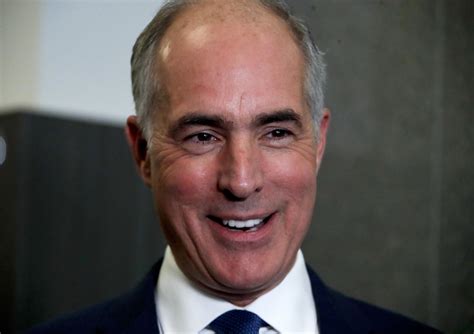Top 475 Crises Quotes & Sayings - Page 6
Explore popular Crises quotes.
Last updated on December 22, 2024.
The default assumption is that - financial crises aside - growth will continue indefinitely. Not just for the poorest countries, where a better quality of life is undeniably needed, but even for the richest nations where the cornucopia of material wealth adds little to happiness and is beginning to threaten the foundations of our wellbeing.
The nation, like the church, has its visible symbols and insignia, its parchments engrossed with the revealed word, its dogmas, hymns, liturgy, holy day celebrations, its early Fathers, prophets and martyrs, its priesthood and its lay sodality, its myths of sacred genesis and apocalyptic crises, its world-saving mission and its missionaries.
Qualities you need to get through medical school and residency: Discipline. Patience. Perseverance. A willingness to forgo sleep. A penchant for sadomasochism. Ability to weather crises of faith and self-confidence. Accept exhaustion as fact of life. Addiction to caffeine a definite plus. Unfailing optimism that the end is in sight.
Companies that do not actively practice, study, and plan for crisis communications - as well, of course, crisis management - are doomed to fail when a crisis befalls them. Crises are, in a word, inevitable, and those macho companies that think, "it can't happen here," or if it does, "I can handle it," will suffer the hardest failures.
People in America get really angry at the Federal Reserve and at the "money system" in general during economic crises. The Fed draws hostility because of its power, its insulation from democratic accountability, its lack of transparency, and because of its historical and structural connections to finance.
Neurotic identity crises come when our defense mechanisms have been too successful and we're encapsulated in the fortress we have constructed with nothing to refresh us in our solitary confinement. So we play the old movies with their stale fears and their unrealistic hopes until we become bored enough to risk disarmament and engagement.
These are uncertain times. We cannot be content to rest on yesterday's laurels. These are times when we must strengthen rather than let down those standards which have stood in such good stead in crises that are past. Baseball cannot be selfish, or irresponsible, or lax. Neither can the men who operate it.
If I wrote a book, I had to be willing at least to talk about some of my struggles, whether in my personal life, health crises, or the deaths of my parents, because there can too easily be a perception of me that my life just went from A to Z uninterrupted, without any ups and downs, and that's not a fair representation.
It has always been the role of government to help solve problems, including and especially health crises. Obesity is a health epidemic across our country, and we have a responsibility as a government and a society to do all we can to promote good nutrition and healthy eating so we can reverse this alarming trend.
It seems evident that the IMF has learned nothing from its inequality-inducing policies during the 1980s debt crises in Latin America nor from its recession-deepening response to the East Asian crisis of the late 1990s. In both regions, the IMF has become synonymous with making bad situations worse.
And while we stand with conviction and courage, we must live with compassion. Amid a world with massive social needs around us, ranging from desperate poverty and orphan crises and millions of girls being trafficked for sex, to the degradation of marriage and the abortion of babies, we need to speak and act with selfless love on all of these issues.
I am not fooling myself with dreams of immortality, know how relative all literature is, don't have any faith in mankind, derive enjoyment from too few things. Sometimes these crises give birth to something worth while, sometimes they simply plunge one deeper into depression, but, of course, it is all part of the same thing.
Where there are love and generosity, there is joy. Where there are sincerity and sacrifice, there is friendship. Where there are harmony and simplicity, there is beauty. Where there are prayer and forgiveness, there is peace. Where there are moderation and patience, there is wisdom. Where there are conflicts and crises, there is opportunity. Where there are wonder and adventure, there is growth. Where there are adoration and confession, there is worship. Where there are compassion and concern, there is God. Where there are faith and hope, there is spring.
Fundamentally transforming the foundations of the economy is the biggest contribution we can make towards building a sustainable future. The current economic crisis may be painful, but it will be nothing compared with the crises we will face if we continue to grow in a way that threatens the life-support systems on which we rely
....the globalization that characterizes today's economics goes beyond or eludes the sovereignty of individual states, and thus the power of their rulers. It is not they, but rather financial groups in control of vast amounts of capital, who decide upon their vertiginous passage through nations, without taking into account the serious crises they might generate.
The objective, clearly enunciated by the leaders of UNCED, is to bring about a change in the present system of independent nations. The future is to be World Government with central planning by the United Nations. Fear of environmental crises - whether real or not - is expected to lead to - compliance
You will ultimately be defined by the sum total of your responses to circumstances, situations and events that you probably couldn't anticipate and indeed probably couldn't even imagine. So just keep your eyes on the course and be ready to move in different directions depending upon the crises and opportunities with which you are faced.
That's part of what I touch on in my [UN] speech - when assaults happen on women and girls in these fragile countries, in these places of crisis, there isn't the psychosocial support. There aren't counseling services. It's not in a lot of cultures to explicitly talk about things that maybe have happened to the body. So, repression of emotion, and shame, and guilt is something that really needs to be handled in humanitarian crises.
The whole system is under tremendous strain. Although the increasing pace of change is essential for developing new solutions, it is also pushing society to its limits. In global structures, it all comes to a head in the form of sudden crises. This leads to tipping point situations in which the seemingly impossible becomes possible.
If we use resources productively and take to heart the lessons learned from coping with the energy crisis, we face a future confronted only, as Pogo, once said, by insurmountable opportunities. The many crises facing us should be seen, then, not as threats, but as chances to remake the future so it serves all beings.
























































